Syria. Aiming at the New Generations.
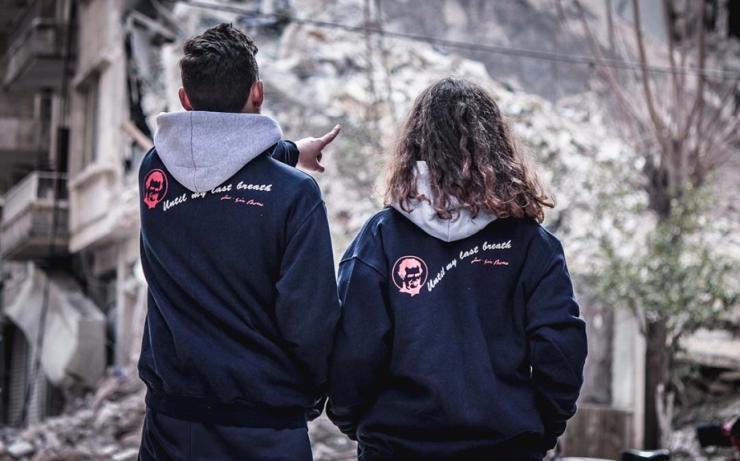
Thirteen years of war have shaped the daily lives of the people remaining in Syria. Millions of children have never known peace. Quality school education is almost non-existent. A generation without a future, which also influences the future of the country. The ‘Don Bosco’ paediatric centre of the Salesians in Damascus is a refuge for many of these boys and girls.
According to United Nations estimates, at least 13,000 children and young people have been killed in the Syrian war. Katia Sioufi survived. In those days, a few seconds could have decided whether she or someone else would be left lifeless on the pavement in front of the school gate. Images that the young woman, now 24 years old, will keep forever. Images of a war that changed her life and her future forever.
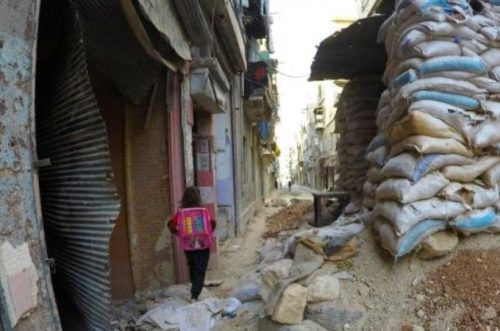
Katia was 11 years old when the war began and took with it many of her friends.Photo Salesian missions
Katia was 11 years old when the war began and took with it many of her friends. Her family remained intact: her father Elias, her mother Violet, and her younger brother Georges.
The older sister Maria left Syria some time ago and took refuge in Hungary with her husband. For the next few years, Katia would only be able to communicate with her youngest niece via cell phone.
Despite everything, Katia is lucky because she is not one of the two million children in Syria who have not attended school for years. They could not be educated because their schools were destroyed, their teachers fled, or poverty forced them to work. The neighbourhood of Jaramana where Katia lives, a suburb southeast of the historic centre of Damascus, has been violently attacked for years, but the school has remained standing despite the impact of grenades and bombs. Sometimes the teachers would only come in the morning.
The Don Bosco Centre
In those years, the one place where she always found someone to welcome her was the ‘Don Bosco’ Salesian Centre for children and young people. The team made up of a handful of religious, lived there and would deliberately leave the gates open, even when gunshots could be heard day and night, and many were afraid to leave their homes. Even today, Katia, who now studies computer science at the University of Damascus, visits the bright building, located on a quiet street in the Al-Salheya neighbourhood, near the city centre, several times a week. Next door, the Salesian nuns run a kindergarten and, from the minaret opposite, the muezzin calls the Muslim neighbours to prayer.
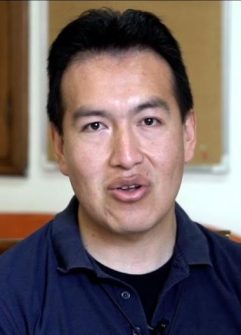
For many years, Fr. Miguel Ángel Condo Soto has worked alongside the populations of the Middle East. Photo: Salesian Missions
Here, at the Don Bosco Centre, Katia meets her friends; here they can have fun together, listen to music, practise sports, play the guitar or put on plays, talk about God and the world – and always find someone to listen to them when their worries are great. The heart of the centre is the chapel. It is a place of peace where Mass is regularly celebrated (attended by many migrant workers, especially Filipinos). Every week, 1,200 children and young people aged between 8 and 25 from socially disadvantaged areas of Damascus attend the Salesian centre with its huge courtyard. Most of them live in the densely populated Jaramana area.
They come from Christian, Orthodox, Maronite and Catholic families – a minority that is disappearing in Syria. “Our centre is a refuge”, explains Miguel Ángel Condo Soto. The 34-year-old Bolivian Salesian priest knows well the needs and suffering of Syrian families. For many years he has worked alongside the populations of the Middle East. “The people in Syria have more than thirteen years of war behind them. They suffer and yet continue to live every day. Everything is in short supply here. Many people can barely earn their daily bread. Food prices are high, petrol is expensive. With us, children and young people can leave the worries of everyday life behind for a few hours and grow stronger”.
The shanty towns
The Salesian community hires buses to take all the children and young people to the safety of the Don Bosco Centre and bring them home after morning lessons. Katia Sioufi steps out of one of these colourful vehicles in Jaramana in the late afternoon. In the dusty streets there is a lot to do. To the right and left of the narrow alleys, illegally constructed buildings rise towards the sky, leaning precariously.
In the past, when Jaramana was still a small town in its own right, most of the people who lived here were Christians and Druze. Today Jaramana is a refuge for countless Palestinian families and Iraqi refugees. The slums begin on the outskirts of the city, where children rummage through piles of roadside rubbish. Katia is returning home. She used to live in Babtouma, the city where she was born, but rents have become unaffordable for a family like the Sioufis.
On the top floor of a tall building, Katia’s parents are waiting for her. Three bedrooms, a kitchen, and a bathroom. The folding dining table is pulled out from behind the cabinet. Mama Violet serves rice today with chicken meat, which cost her a lot of money.
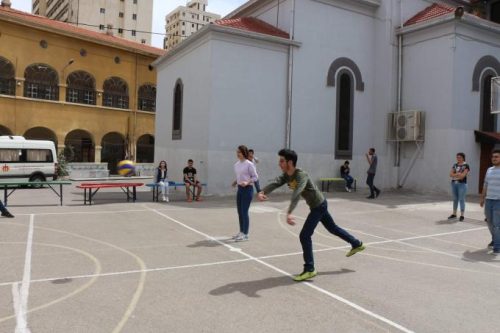
The Don Bosco Centre wants to offer a safe place for many children and young people. Photo: Salesian Missions
The 51-year-old woman comments: “What we earn is barely enough to live on. Before the war, we could send Katia to a public school. Now we can no longer support our children as we would like”. Later, 19-year-old Georges returned home. He has found work in a small jewellery shop. The money he earns is not enough for him to study. Like every other day, he makes his bed on the sofa. Hoping for a better future, Katia wants to continue studying. She can do this with the help of the Salesians, who have rented a small house in Jaramana with financial help from abroad. In the classrooms of this outpost of the Don Bosco Centre, every day, supplementary lessons are given to as many children in the neighbourhood as possible: mathematics, Arabic, English, physics, and everything you need. For many of them, it is the only quality education they receive during the day. The teachers are former students of the Don Bosco community, who teach younger children in the afternoon, thus earning some money for their families. “We support young people socially, emotionally and spiritually”, explains Father Miguel. Katia is one of the young people who teaches the younger children, and she enjoys coming here to study. There is almost no electricity in the house and in winter there is no heating.
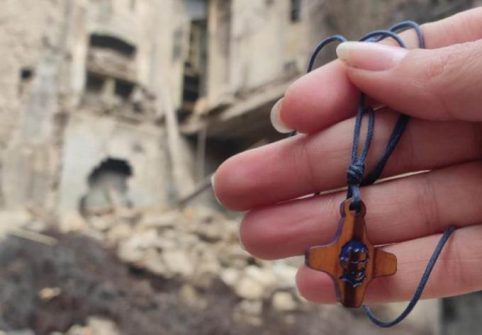
“We want the young generations to realize their dreams here again”. Photo: Salesian Missions
“If we are cold, we cannot learn well”, says Leen Abou Sekka, another former Don Bosco youth in charge of the Jaramana house. About 250 children come regularly. Leen turns off the lights at 10 p.m. “Public schools in Syria are not of a good standard. Furthermore, many girls and boys have physical and psychological injuries. They have suffered many bad things. Some have stammers, others are violent, still others have completely withdrawn from the community. The war still affects them today”. Leen would like more space and a larger group of teachers. But there is no money. However, a small meal is served every day. Nothing hot, mostly sandwiches, which can easily be prepared. The centre asks families for a symbolic financial contribution.
In Damascus, there are not many safe places for children. The Don Bosco Centre wants to offer a safe place for many children and young people. Father Dany Kerio, director of the Salesian community in Damascus, says: “We want the young generations to realize their dreams here again”, so that Syria does not remain a lost country. (Open Photo: Salesian Missions)
Kristina Balbach/Missio



